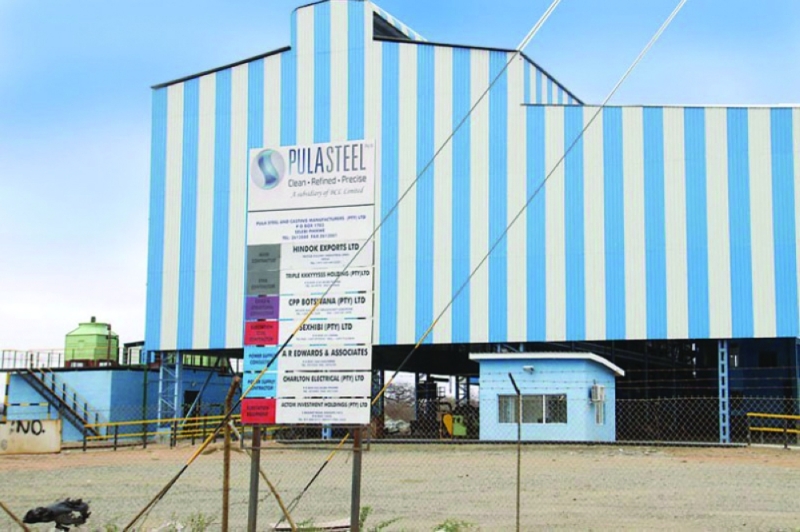Pula Steel bounces back to life
Mbongeni Mguni | Monday March 28, 2022 06:00


Pula Steel’s liquidation has dragged since it closed in 2017, just two years after it was built at a cost of P130 million strained by financial and technical challenges, particularly the shortage of its raw material, scrap metal.
The latest sale value suggests a 'pennies on the pounds' settlement for creditors, who are reportedly owed about P100 million. However, it also represents the best deal in a troubled period in which previous suitors have broken the transaction terms and in which the liquidation process has also suffered lawsuits from the plant’s founders.
Documents seen by Mmegi this week indicate that VRI Metal Industries, a subsidiary of Vision Ridge Investments, will pay P16 million for Pula Steel under terms that include paying a non-refundable deposit and carrying the cost of care and maintenance activities at the Selebi-Phikwe plant.
The full settlement of the sale amount will be made over eight months.
“In view of the difficulties we have faced in disposing of the assets of Pula Steel, having had two failed tenders followed by COVID-19 and its devastating impact on the economy, I believe this is the best deal we could achieve on behalf of the creditors and to bring a close to this liquidation process,” liquidator, John Hinchliffe wrote in a recent report seen by BusinessWeek. “In addition, the sale will bring much-needed employment and other economic benefits to Selebi-Phikwe. “Once operational, the project will also reduce imports of steel products into the country and hopefully will result in some exports as well. “I, therefore, see the sale as a positive economic development for Botswana.”
Vision Ridge Investments owns the Ikongwe iron ore mine near Shoshong, which plans to produce one million tonnes of iron ore per year over an initial 10-year lifespan. Vision Ridge, which is a unit of India’s Yashomann Industries, commenced exports of iron ore to China last September and the Pula Steel deal is seen as a move for greater local beneficiation.
BusinessWeek is informed that Ikongwe plans to supply iron ore for processing at Pula Steel, enabling Botswana to produce various final steel products for the first time in its history. Before its closure, Pula Steel was using scrap metal to produce steel billets, an intermediary steel product.
It is understood 200 workers will initially be employed at Pula Steel upon resumption of full operations, compared to the staff complement of approximately 300 who worked there prior to closure. However, the new owners reportedly have plans to establish a second plant in the same area, which could be another 200 jobs.
Pula Steel’s revival is seen as a further boost to the Selebi-Phikwe regional economy, as plans to resuscitate BCL Mine continue. The steel plant was fed with scrap metal from BCL Mine and was part of the mine’s life extension plans, known as Polaris II. BCL Mine injected a total of P111.2 million into Pula Steel, before also shutting down in October 2016.
